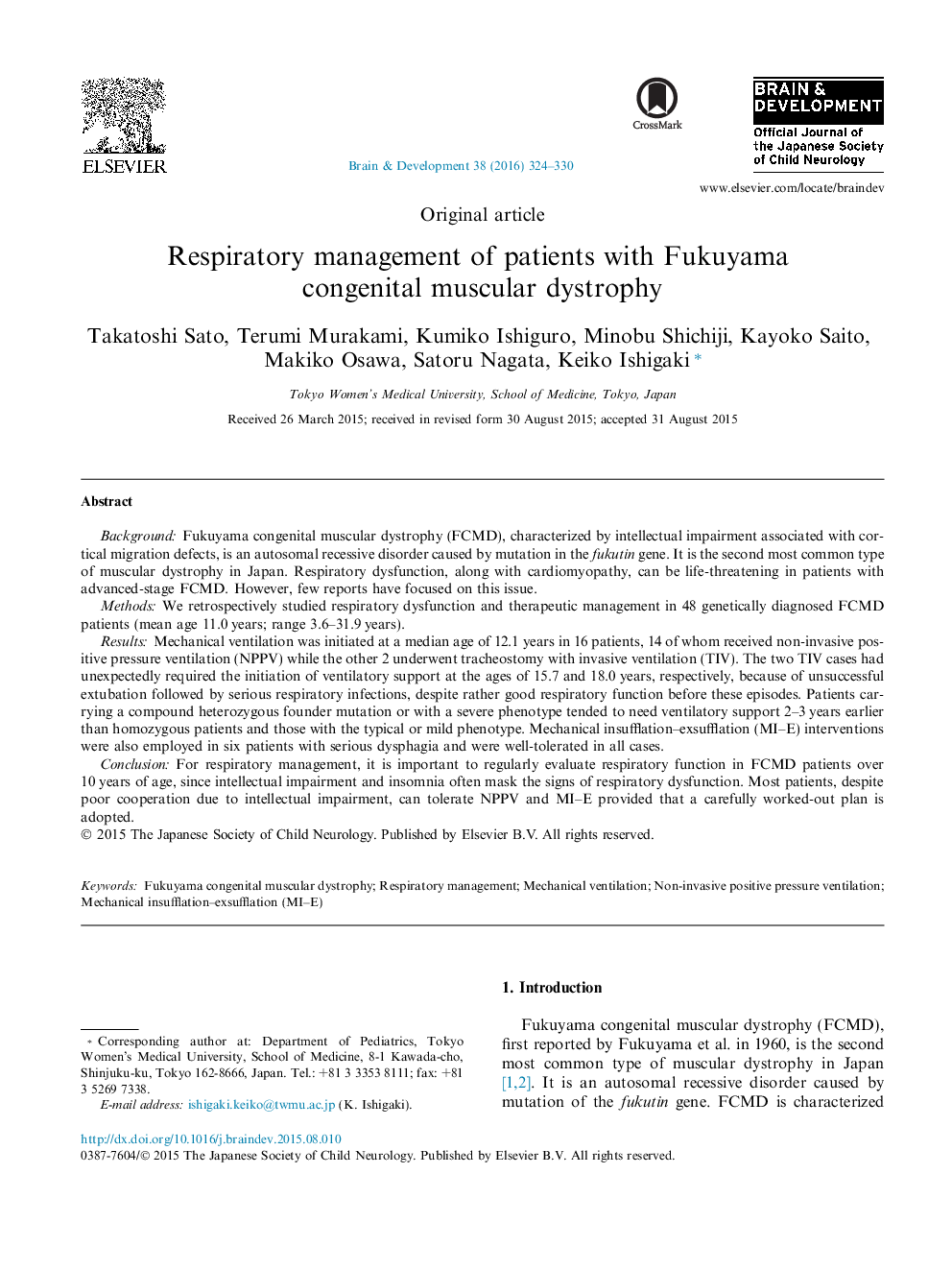| کد مقاله | کد نشریه | سال انتشار | مقاله انگلیسی | نسخه تمام متن |
|---|---|---|---|---|
| 3036558 | 1184375 | 2016 | 7 صفحه PDF | دانلود رایگان |
BackgroundFukuyama congenital muscular dystrophy (FCMD), characterized by intellectual impairment associated with cortical migration defects, is an autosomal recessive disorder caused by mutation in the fukutin gene. It is the second most common type of muscular dystrophy in Japan. Respiratory dysfunction, along with cardiomyopathy, can be life-threatening in patients with advanced-stage FCMD. However, few reports have focused on this issue.MethodsWe retrospectively studied respiratory dysfunction and therapeutic management in 48 genetically diagnosed FCMD patients (mean age 11.0 years; range 3.6–31.9 years).ResultsMechanical ventilation was initiated at a median age of 12.1 years in 16 patients, 14 of whom received non-invasive positive pressure ventilation (NPPV) while the other 2 underwent tracheostomy with invasive ventilation (TIV). The two TIV cases had unexpectedly required the initiation of ventilatory support at the ages of 15.7 and 18.0 years, respectively, because of unsuccessful extubation followed by serious respiratory infections, despite rather good respiratory function before these episodes. Patients carrying a compound heterozygous founder mutation or with a severe phenotype tended to need ventilatory support 2–3 years earlier than homozygous patients and those with the typical or mild phenotype. Mechanical insufflation–exsufflation (MI–E) interventions were also employed in six patients with serious dysphagia and were well-tolerated in all cases.ConclusionFor respiratory management, it is important to regularly evaluate respiratory function in FCMD patients over 10 years of age, since intellectual impairment and insomnia often mask the signs of respiratory dysfunction. Most patients, despite poor cooperation due to intellectual impairment, can tolerate NPPV and MI–E provided that a carefully worked-out plan is adopted.
Journal: Brain and Development - Volume 38, Issue 3, March 2016, Pages 324–330
